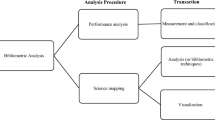Abstract
Research funding has been undergoing a shift from recurrent, stable funding to competitive funding of projects. The system rests on the assumption that the best proposals or the best researchers receive the resources, i.e., that quality is not only necessary but also sufficient to win a grant. A comparative study of the conditions of fund acquisition was conducted to test this assumption. Qualitative interviews with 45 German and 21 Australian Experimental physicists were conducted. Although the quality of a proposal and the reputation of a researcher are important prerequisites for a successful acquisition of funds, the success of a funding proposal depends on several factors that are not linked to quality and cannot even be controlled by scientists. Scientists used adaptation strategies and universities applied institutional measures to increase their chances of external funding, but with limited success. Under the described conditions, grant acquisition is based on a Matthew Effect by rewarding the richly funded researchers and hindering entry or continuous funding for others. For these reasons it must also be doubted that external funding per se is a useful performance indicator.
Similar content being viewed by others
References
P. Bazeley (1998) ArticleTitle‘Peer review and panel decisions in the assessment of Australian Research Council project grant applicants: What counts in a highly competitive context?’ Higher Education 35 435–452 Occurrence Handle10.1023/A:1003118502318
(BLK), Bund-Länder-Kommission für Bidlungsplanung und Forschungsförderung (2001). Ausführungsvereinbarung DFG (AV-DFG) - vom 28. Oktober/17. Dezember 1976, zuletzt geändert am 20. März 2001.
D.E. Chubin E.J. Hackett (1990) Peerless Science: Peer Review and U.S. Science Policy State University of New York Press Albany, NY
S. Cole L. Rubin J.R. Cole (1978) Peer Review in the National Science Foundation. Phase One of a Study National Academy of Sciences Washington
De Strooper B. (2004). The EC Framework Programme - time for a radical rethink. (ELSO Gazette, Issue 18, February 2004).
A. Geuna (1998) ArticleTitle‘Determinants of university participation in EU-funded R & D cooperative projects’ Research Policy 26 677–687 Occurrence Handle10.1016/S0048-7333(97)00050-4
R. Gillett (1991) ArticleTitle‘Pitfalls in assessing research performance by grant income’ Scientometrics 22 253–263 Occurrence Handle10.1007/BF02020000
E.J. Hackett (1987) ArticleTitle‘Funding and academic research in the life sciences: Results of an exploratory study’ Science & Technology Studies 5 134–147
S. Hornbostel (2001) ArticleTitle‘Third party funding of German universities. An indicator of research activity?’ Scientometrics 50 523–537 Occurrence Handle10.1023/A:1010566916697
D.F. Horrobin (1996) ArticleTitle‘Peer review of grant applications: A harbinger for mediocrity in clinical research?’ Lancet 348 1293–1295 Occurrence Handle10.1016/S0140-6736(96)08029-4
K. Knorr-Cetina (1981) The Manufacture of Knowledge: An Essay on the Constructivist and Contextual Nature of Science Pergamon Press Oxford
L. Langfeldt (2001) ArticleTitle‘The decision-making constraints and processes of grant peer review, and their effects on the review outcome’ Social Studies of Science 31 820–841
G. Laudel (1999) Interdisziplinäre Forschungskooperation: Erfolgsbedingungen der Institution ‘Sonderforschungsbereich’ Edition Sigma Berlin
Laudel G. (2004). ‘The art of getting funded: How scientists adapt to their funding conditions’, (submitted).
Laudel G. and Valerius G. (2001). Innovationskollegs als “Korrekturinstitutionen” im Institutionentransfer? Abschlussbericht zum DFG-Projekt Innovationskollegs als Instrument der Umgestaltung der unviversitären Forschung im ostdeutschen Transformationsprozess - Akteure, Strukturen und Effekte’. FIT Arbeitsberichte. Frankfurt (Oder): Europa-Universität Frankfurt, Frankfurter Institut für Transformationsforschung.
R. Mayntz F.W. Scharpf (1995) ‘Der Ansatz des akteurzentrierten Institutionalismus’ R. Mayntz F.W. Scharpf (Eds) Gesellschaftliche Selbstregelung und politische Steuerung Frankfurt a. M. Campus 39–72
R.K. Merton (1968) ArticleTitle‘The Matthew Effect in Science’ Science 159 56–63
H.F. Moed M. Luwel J.A. Houben E. Spruyt H. Vanden Berghe (1998) ArticleTitle‘The effects of changes in the funding structure of the Flemish universities on their research capacity, productivity and impact during the 1980’s and early 1990’s’ Scientometrics 43 231–255
F. Neidhardt (1988) Selbsteuerung in der Forschungsförderung Westdeutscher Verlag Opladen
F.W. Scharpf (1997) Games Real Actors Play. Actor-Centered Institutionalism in Policy Research Westview Press Boulder
U. Schimank (1995) ArticleTitle‘Probleme der westdeutschen Hochschulforschung seit den siebziger Jahren’ Leviathan 23 56–77
G.D.L. Travis H.M. Collins (1991) ArticleTitle‘New light on old boys: Cognitive and institutional particularism in the peer review system’ Science, Technology, and Human Values 16 322–341
N. Viner P. Powell R. Green (2004) ArticleTitle‘Institutionalized biases in the award of research grants: a preliminary analysis revisiting the principle of accumulative advantage’ Research Policy 33 443–454 Occurrence Handle10.1016/j.respol.2003.09.005
Wissenschaftsrat (2000) Drittmittel und Grundmittel der Hochschulen 1993 bis 1998 Wissenschaftsrat Köln
F.Q. Wood (1992) ArticleTitle‘The Commercialisation of university research in Australia: issues and problems’ Comparative Education 28 293–313
Author information
Authors and Affiliations
Corresponding author
Rights and permissions
About this article
Cite this article
Laudel, G. The ‘Quality Myth’: Promoting and Hindering Conditions for Acquiring Research Funds. High Educ 52, 375–403 (2006). https://doi.org/10.1007/s10734-004-6414-5
Issue Date:
DOI: https://doi.org/10.1007/s10734-004-6414-5




